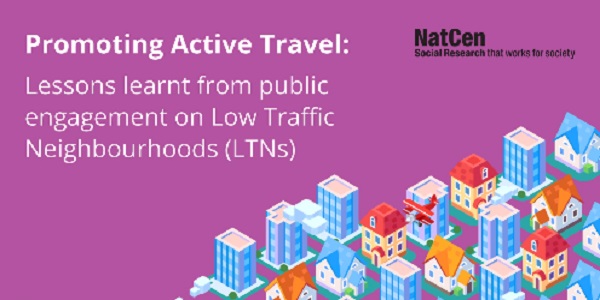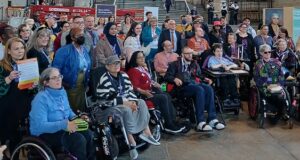RESEARCH INTO how controversial Low Traffic Neighbourhoods (LTNs) are going down with Londoners shows a strong desire for consultation over new LTNs – real consultation and working up the detail together, not just imposition of schemes dreamed up in Town Halls.
The research was carried out by the National Centre for Social Research (NatCen), on behalf of the European Climate Foundation. NatCen chose Lambeth and Wandsworth as areas for their research on the grounds that both boroughs had introduced LTNs during the pandemic – to a mixed reception in both areas.
Now NatCen is trying to inform Councillors from the whole of England about these key findings, which they believe Councils should take on board when operating these LTNs or introducing new ones, and which were published yesterday, 20th January.
•Residents want more information and an opportunity to have a say about LTN proposals. This consultation should reach a cross-section of the community (using community languages and reaching those who are digitally excluded) and should be ongoing, not a one-off opportunity.
•LTNs should be implemented more sensitively, with grace periods during which warnings are given before fines kick in.
•There should be more investment in other forms of travel, such as cycle lanes and buses, to make it easier to leave the car at home.
Unrelated consultation in East London has also revealed that residents are very keen that the emergency services are involved in planning LTNs. There have been requests for more to be done to tackle through traffic: sometimes residents fear that the punitive measures that are inflicted upon them just clear the way for others to drive through their boroughs into central London or to drive across the capital.
East London residents have also spoken about how some of them are using cars to help vulnerable people travel during the pandemic, when it can be risky to use public transport, and to collect shopping and medicines for those who are staying at home.
Residents who gave their views to the NatCen researchers included those who had welcomed LTNs in their areas – and those who had hated them. Residents were given information about LTNs and what they were trying to achieve: around half of the residents then changed their views, and other half did not. Here are some of the residents’ responses.
●“After taking part last night I feel a lot more educated about LTNs and their purpose. I think they can really help the local community, reduce pollution, asthma in younger children and make the streets and roads nearby to me safer for everybody. I fully support LTNs in my area and other areas but it has to be a co-ordinated effort, so all the different London boroughs come [together] to get LTNs working properly.”
Wandsworth resident
●“Yes [my views have changed], I was completely supportive of LTNs before this session but now understand from other participants that there are negative impacts of LTNs for some residents who live in the surrounding area.”
Lambeth resident
●“I now have a better understanding of LTNs however my view has not changed completely about introducing them. I believe other measures should be implemented before LTNs, particularly in urban areas.”
Wandsworth resident
●“It’s nice in theory but in reality we don’t have all the other measures to go with it that would actually improve how we’re going to get somewhere.”
Lambeth resident
We do have to tackle the pollution coming from traffic. However, plans cooked up in Town Halls and imposed on residents will not be a quick fix.
●Read more about it:
Medact plans campaigns on climate and health
Council declares climate emergency and then fells trees
●Watch East London’s weekly news magazine programme,
live at 10pm every Tuesday and on demand all week:
The Tuesday Show
 East London News A Force for the community…
East London News A Force for the community…




